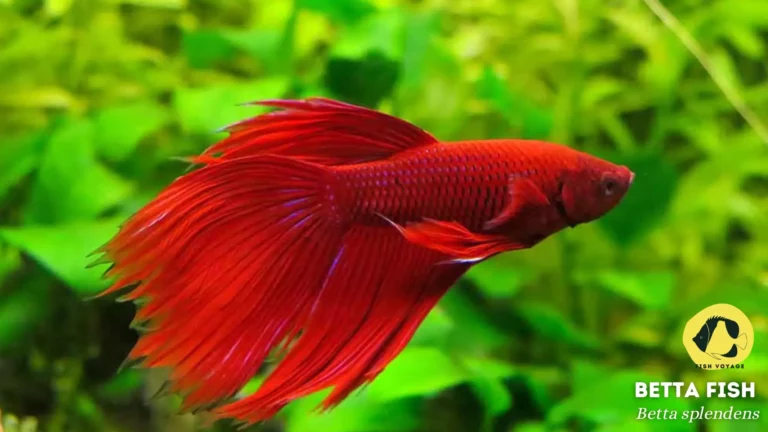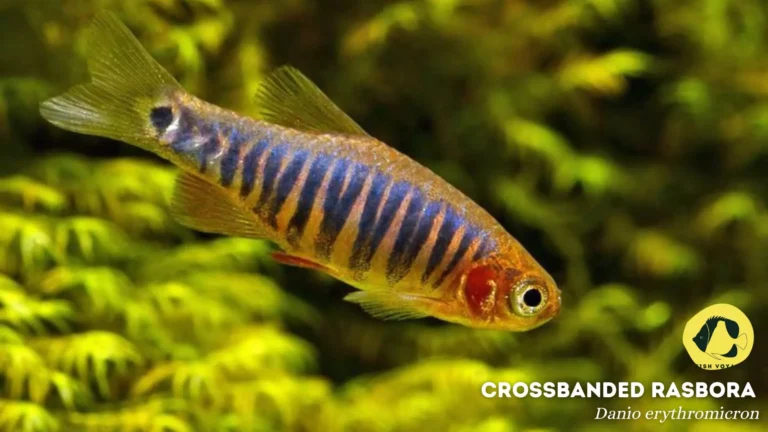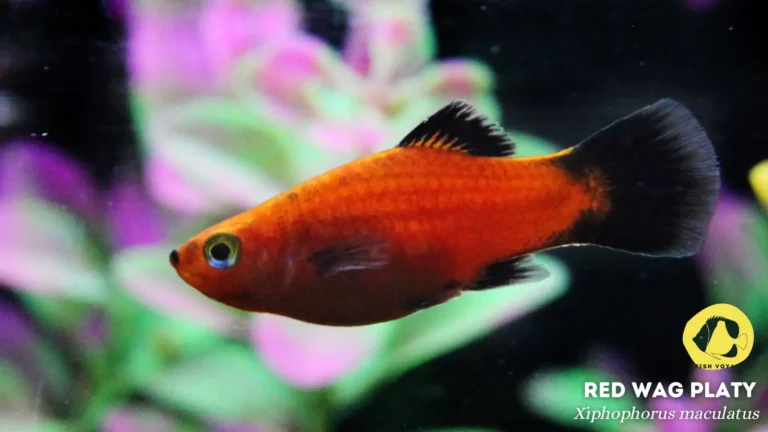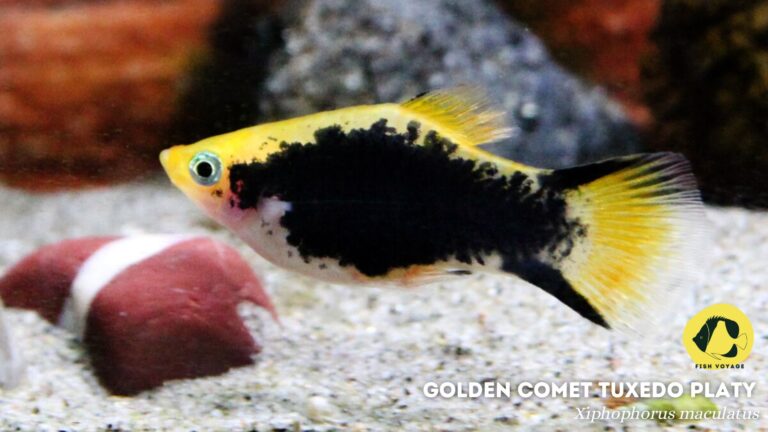How Often Should You Feed A Betta Fish Bloodworms?
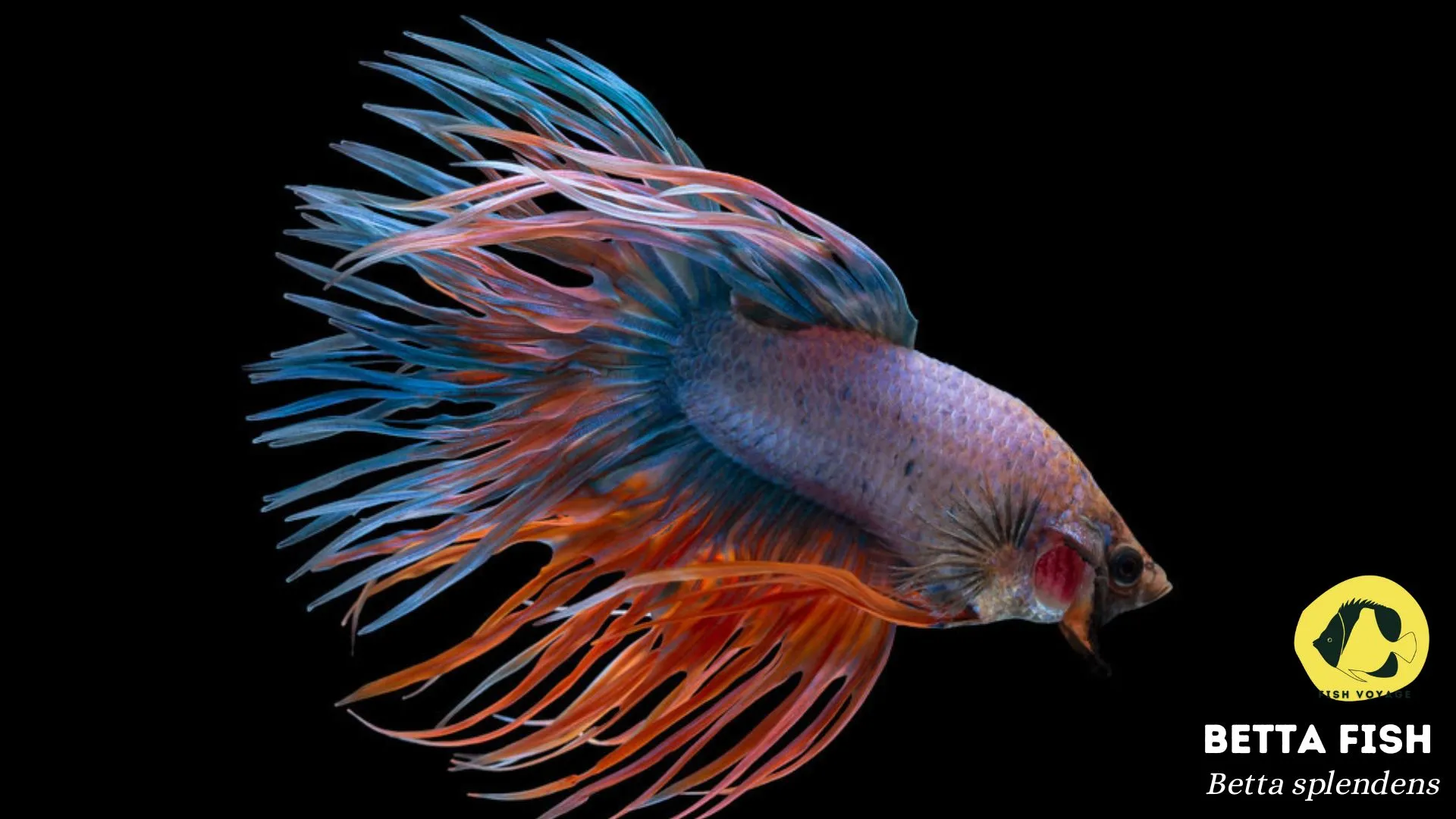
Betta fish, renowned for their vibrant colors and distinctive flowing fins, have secured their place as beloved companions in aquariums worldwide. As popular aquarium pets, Betta fish captivate enthusiasts with their unique personalities and low-maintenance care requirements. Among the various dietary considerations for Betta fish, bloodworms stand out as a common and nutritious food choice. These freeze-dried or frozen larvae of midge flies are rich in essential nutrients, making them a popular option among Betta owners. However, determining the optimal frequency for feeding bloodworms is crucial for ensuring the overall health and vitality of these captivating fish. In this blog post, we delve into the intricacies of Betta fish care, specifically focusing on the frequency of feeding bloodworms. By establishing a well-informed feeding routine, aquarists can enhance the well-being of their Betta companions, fostering a thriving and visually stunning aquatic environment.
Importance of a Balanced Diet
Balanced Diet for Betta Fish Health
- Optimal Growth and Development: Ensuring a balanced diet is paramount for the overall health and development of Betta fish. It directly influences their growth, coloration, and vitality.
- Disease Prevention: A well-rounded diet contributes to a robust immune system, reducing the susceptibility of Betta fish to common ailments. Essential nutrients play a pivotal role in disease prevention.
- Enhanced Reproductive Health: A balanced diet positively affects reproductive health, promoting successful breeding and the production of healthy offspring. This is particularly crucial for Betta breeding enthusiasts.
Essential Nutrients and Their Role in Betta Fish Well-Being
- Proteins for Muscle Development: High-quality proteins are essential for muscle development, and they play a crucial role in maintaining the Betta fish’s unique finnage and overall physique.
- Vitamins for Vital Functions: Vitamins, such as A, C, and D, contribute to various physiological functions, including vision, immunity, and calcium metabolism. A deficiency in these vitamins can lead to health issues.
- Omega-3 Fatty Acids for Cardiovascular Health: Omega-3 fatty acids support cardiovascular health, helping to prevent conditions like swim bladder disorder. These fats are often found in certain types of fish food, providing a well-rounded diet.
Need for Variety in a Betta Fish’s Diet
- Preventing Nutritional Deficiencies: Offering a diverse array of foods, including pellets, flakes, and live or frozen options like bloodworms, helps prevent nutritional deficiencies that may arise from a monotonous diet.
- Stimulating Natural Behaviors: Varying the diet mimics the Betta fish’s natural feeding behaviors in the wild. It promotes mental stimulation and reduces the risk of boredom-related issues.
- Personalized Nutrition: Recognizing that individual Betta fish may have different preferences, providing a variety of foods allows owners to tailor the diet to their specific needs and tastes.
By understanding the crucial role of a balanced diet, Betta enthusiasts can foster a thriving and resilient aquatic environment, promoting the long-term health and happiness of these captivating fish.
Understanding Bloodworms
What are Bloodworms?
- Identification: Bloodworms are the larvae of midge flies, appearing as small, red or brown, slender worms. Despite their name, they are not actually worms but the larval stage of a fly belonging to the Chironomidae family.
- Natural Habitat: Found in aquatic environments, bloodworms thrive in muddy or sediment-rich areas. Their natural habitat provides important context for understanding their nutritional composition.

Nutritional Value of Bloodworms for Betta Fish
- Protein-Rich Diet: Bloodworms are a highly valuable source of protein, a crucial component for Betta fish growth, fin development, and overall muscular health.
- Essential Amino Acids: These larvae contain essential amino acids that Betta fish cannot produce on their own. Amino acids are building blocks for various bodily functions, contributing to overall vitality.
- Vitamins and Minerals: Bloodworms are rich in essential vitamins (A, B complex, D) and minerals (iron, calcium), contributing to Betta fish’s overall well-being and supporting various physiological functions.
Potential Benefits and Risks Associated with Feeding Bloodworms
Benefits of Bloodworms
- Enhanced Coloration: The pigments in bloodworms can enhance and maintain the vibrant coloration of Betta fish.
- Stimulates Natural Hunting Behavior: Feeding bloodworms encourages Betta fish to exhibit their natural hunting behaviors, providing mental stimulation.
Risks and Considerations
- Overfeeding Concerns: Excessive feeding of bloodworms can lead to nutritional imbalances and potential health issues.
- Quality Assurance: It’s crucial to ensure the quality of bloodworms to prevent contamination and ensure the best nutritional benefits.
Understanding the nature of bloodworms enables Betta fish owners to make informed decisions about incorporating them into their pets’ diet. By recognizing the nutritional benefits and potential risks, aquarists can optimize the health and vibrancy of their Betta fish.
Feeding Guidelines
General Feeding Recommendations for Betta Fish
Consistent Feeding Schedule
- Establish a regular feeding schedule to maintain Betta fish health and prevent overfeeding.
- Feed adult Betta fish 2-3 times a day and juvenile Betta fish 3-4 times a day, adjusting portion sizes accordingly.
Appropriate Portion Sizes
- Avoid overfeeding by providing small, appropriately-sized portions. Betta fish have small stomachs, and excess food can lead to digestive issues.
High-Quality Pellets and Flakes
- Include a staple diet of high-quality Betta fish pellets or flakes that provide essential nutrients.
- Choose pellets with a balanced combination of proteins, fats, and carbohydrates suitable for Betta fish.
Specific Considerations for Feeding Bloodworms
Moderation is Key
- Integrate bloodworms into the diet in moderation, balancing them with other foods.
- Feed bloodworms as a supplement rather than the primary food source to prevent nutritional imbalances.
Varied Diet for Optimal Nutrition
- Combine bloodworms with other foods like pellets, flakes, and live or frozen options to provide a diverse and well-rounded diet.
- Rotate different food types to mimic the Betta fish’s natural feeding habits.
Factors Influencing the Frequency of Bloodworm Feeding
Age and Life Stage
- Adjust the frequency of bloodworm feeding based on the age and life stage of the Betta fish.
- Juveniles may require more frequent meals to support their rapid growth.
Activity Levels
- Observe the Betta fish’s activity levels and adjust feeding frequency accordingly.
- More active fish may require additional feedings, while less active ones may thrive with a slightly reduced schedule.
Individual Health and Behavior
- Monitor individual Betta fish health and behavior to identify any specific dietary needs or preferences.
- Some Betta fish may have different appetites or reactions to specific foods, necessitating a personalized approach.
By adhering to these feeding guidelines, Betta fish enthusiasts can ensure a well-maintained and balanced diet for their aquatic companions. Implementing these practices not only promotes optimal health but also contributes to the overall well-being and vibrancy of Betta fish.
Signs of Overfeeding or Underfeeding
Indicators of Overfeeding in Betta Fish
- Uneaten Food Accumulation: Observe uneaten food accumulating at the bottom of the tank, indicating that the Betta fish may be receiving more food than it can consume.
- Digestive Issues: Look for signs of bloating, constipation, or swim bladder disorders, which may result from an excessive intake of food.
- Decline in Water Quality: Overfeeding can lead to an increase in waste production, affecting water quality. Monitor water parameters to ensure a healthy aquatic environment.
Signs of Underfeeding and Malnutrition
- Reduced Activity Levels: Underfed Betta fish may exhibit lethargy or reduced activity levels as a result of insufficient energy intake.
- Faded Coloration: Malnutrition can lead to a loss of vibrant coloration in Betta fish. A healthy diet contributes to the maintenance of their striking hues.
- Frayed or Torn Fins: Inadequate nutrition may result in weakened fin structure. If the Betta fish’s fins appear frayed or torn, it could be a sign of malnutrition.
Balancing Bloodworms with Other Types of Betta Fish Food
Diversifying the Diet
- Incorporate a mix of pellets, flakes, and live or frozen options alongside bloodworms to provide a balanced and varied diet.
- This prevents overreliance on a single food type and reduces the risk of nutritional deficiencies.
Observing Consumption Patterns
- Monitor how Betta fish respond to different foods, adjusting the quantity and frequency based on their preferences and nutritional needs.
Rotating Food Types
- Rotate the types of food offered to mimic the Betta fish’s natural feeding behavior. This not only provides nutritional variety but also keeps the feeding routine engaging for the fish.
By being attentive to signs of overfeeding and underfeeding, Betta fish owners can strike a balance in their feeding practices. Integrating bloodworms into a diversified diet ensures that Betta fish receive the essential nutrients needed for optimal health and well-being. Regular observation and adjustments to feeding routines contribute to a thriving aquatic environment for these captivating and vibrant fish.
How Often Should You Feed Bloodworms?
Tailoring Feeding Frequency to Betta Fish Age
Juvenile Betta Fish
Frequent Feedings: Young Betta fish, especially juveniles, have higher energy requirements for growth. Feed them three to four times a day to support their rapid development.
Proportionate Portion Sizes: Provide small, age-appropriate portions to prevent overfeeding and digestive issues.
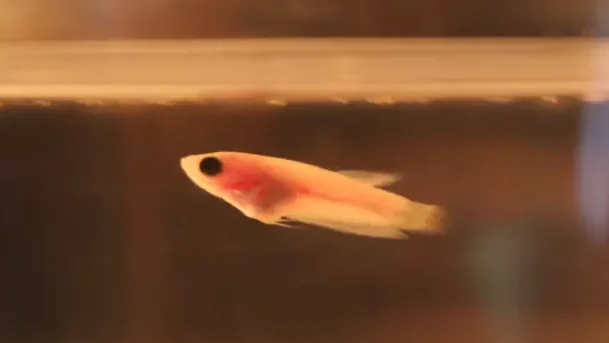
Adult Betta Fish
Moderate Feedings: Adult Betta fish generally thrive with two to three feedings per day. Adjust portion sizes to maintain optimal body condition.
Consistency is Key: Maintain a consistent feeding schedule to establish a routine for adult Betta fish.
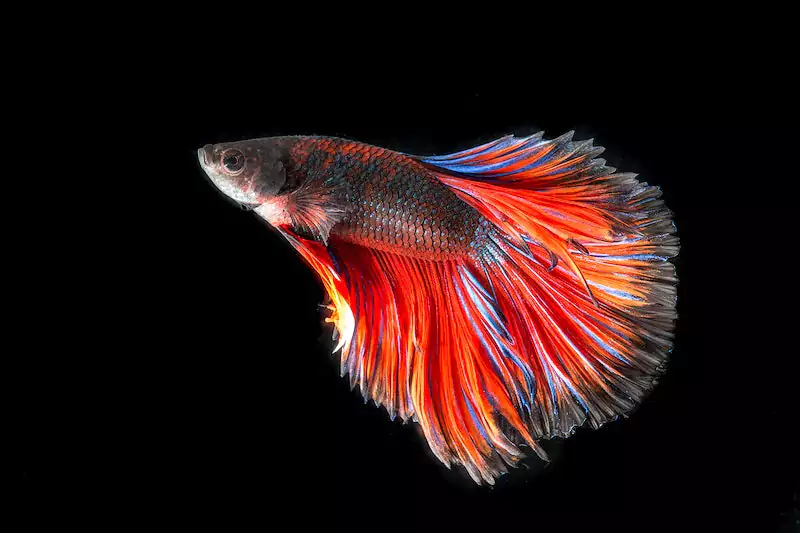
Guidelines for Adult Betta Fish vs. Juvenile Betta Fish
Protein Emphasis for Juveniles
High-Protein Diet: Juvenile Betta fish benefit from a diet rich in proteins to support their rapid growth and development.
Incorporate Bloodworms: Include bloodworms in their diet as a protein-rich supplement, adjusting the frequency as needed.
Balanced Diet for Adult Betta Fish
Moderation with Bloodworms: For adult Betta fish, balance bloodworms with other high-quality Betta food to maintain a varied and nutritious diet.
Monitor Weight: Adjust bloodworm frequency based on the Betta fish’s weight and overall health.
Common Misconceptions About Bloodworm Feeding Frequency
Myth 1
- Myth: Bloodworms as Primary Food
- Reality: While bloodworms offer valuable nutrients, they should not constitute the sole diet. Use them as a supplement to a well-rounded diet.
Myth 2
- Myth: Daily Bloodworm Feedings
- Reality: Daily bloodworm feedings may lead to overfeeding and nutritional imbalances. Follow a balanced schedule to avoid potential health issues.
Myth 3
- Myth: No Need for Variation
- Reality: Even if Betta fish prefer bloodworms, it’s essential to provide dietary variety. Rotation ensures a broader spectrum of nutrients.
By tailoring bloodworm feeding frequency to the age of Betta fish and dispelling common misconceptions, aquarists can establish a feeding routine that optimally supports the health and well-being of their Betta companions. Regular observation and adjustments based on individual needs contribute to a thriving aquatic environment.
Feeding Schedule Examples
Sample Feeding Schedules for Betta Fish
Standard Adult Betta Feeding Schedule
- Morning: Begin the day with a portion of high-quality Betta pellets.
- Afternoon: Offer a mix of Betta flakes and bloodworms for variety and nutritional balance.
- Evening: Conclude the day with another round of pellets or alternative staple food.
Juvenile Betta Feeding Schedule
- Morning: Provide a small portion of high-protein Betta pellets to support growth.
- Afternoon: Incorporate a mix of Betta flakes and bloodworms for additional protein.
- Evening: Offer a final serving of pellets or alternative nutrient-rich food.
Adjusting the Schedule Based on Betta Fish Activity Levels
Active Betta Fish
- Increased Frequency: If your Betta fish exhibits high activity levels, consider adding an extra feeding to meet their energy demands.
- Incorporate Bloodworms: Introduce bloodworms during these extra feedings to ensure variety in their diet.
Less Active Betta Fish
- Moderate Schedule: For Betta fish with lower activity levels, stick to the standard feeding schedule to prevent overfeeding.
- Monitor Condition: Adjust portion sizes based on the fish’s weight and overall condition.
- Importance of Observing Betta Fish Behavior to Fine-Tune Feeding Frequency
Watch for Eagerness or Disinterest
- Eager Feeding: If Betta fish eagerly approach food during feedings, it may indicate they are ready for more frequent meals.
- Disinterest: Lack of interest in food may suggest a need to adjust the feeding schedule or explore different food options.
Tailor to Individual Preferences
- Preferred Food Types: Observe whether Betta fish show a preference for certain foods, such as bloodworms. Adjust the schedule to incorporate preferred options.
- Trial and Error: Fine-tune the feeding routine through trial and error, taking note of the Betta’s response to different schedules.
Maintain Consistency
- Establish Routine: Betta fish thrive on consistency. Once an optimal feeding schedule is determined, maintain it to provide a stable and predictable environment.
- Observe Changes: If there are changes in the Betta’s behavior or condition, be prepared to adjust the feeding schedule accordingly.
By implementing sample feeding schedules, adjusting based on activity levels, and keenly observing Betta fish behavior, aquarists can develop a feeding routine that enhances the overall health and happiness of their aquatic companions. Regular assessments and adjustments contribute to a harmonious and thriving aquarium environment.
Conclusion
Recap of Key Points on Feeding Betta Fish Bloodworms
Nutritional Significance
- Bloodworms are a valuable protein source for Betta fish, contributing to growth, coloration, and overall health.
- Their high amino acid content and essential nutrients make them a beneficial supplement to a well-rounded diet.
Balanced Diet Importance
- Emphasize the significance of a balanced diet, incorporating a variety of foods to meet different nutritional needs.
- Bloodworms, when used in moderation, contribute to the overall nutritional diversity essential for Betta fish well-being.
Importance of Monitoring and Adapting Feeding Practices
Individualized Care
- Stress the need for individualized care, as Betta fish may have unique preferences and dietary requirements.
- Regularly observe fish behavior, adjust feeding schedules, and monitor any changes in health or appetite.
Preventing Overfeeding
- Overfeeding can lead to health issues; stress the importance of moderation and maintaining a consistent feeding schedule.
- Monitor for signs of overfeeding, such as uneaten food and changes in fish behavior.
Adapt to Life Stages
- Acknowledge that the feeding needs of Betta fish evolve with age, and feeding practices should be adjusted accordingly.
- Tailoring feeding frequency and portion sizes based on life stages is crucial for optimal growth and development.
A Call to Share Experiences
Community Engagement
- Encourage readers to share their experiences, challenges, and successes in feeding Betta fish bloodworms.
- Building a community fosters knowledge-sharing and provides valuable insights for fellow Betta enthusiasts.
Consultation with Experts
- Advocate seeking advice from experienced aquarists and experts in Betta fish care.
- Emphasize the value of professional guidance, especially for those new to Betta fish ownership or facing specific challenges.
Continuous Learning
- Highlight the dynamic nature of Betta care and the aquarium hobby, promoting a mindset of continuous learning.
- Suggest staying informed about the latest research and advancements in Betta fish nutrition and care.
In conclusion, providing a comprehensive overview of feeding Betta fish bloodworms underscores the importance of balance, observation, and adaptability in caring for these captivating aquatic companions. By summarizing key points and encouraging community engagement, aquarists can contribute to the well-being of their Betta fish and enrich the broader aquarium community.
Additional Resources
Reputable Forums
- BettaFish.com Community: Join the BettaFish.com community, where experienced hobbyists share insights, advice, and firsthand experiences on feeding, health, and general care for Betta fish.
- AquariumAdvice.com Betta Forum: Explore discussions on Betta care, including feeding practices, at AquariumAdvice.com. Engage with knowledgeable community members and seek guidance on specific concerns.
- Reddit Betta Community: Join the Betta fish community on Reddit to participate in discussions, share experiences, and seek advice from a diverse group of Betta enthusiasts.
Betta Fish Food Products
- Hikari Bio-Pure Freeze Dried Bloodworms: Considered a high-quality option, Hikari’s Bio-Pure Freeze Dried Bloodworms are a nutritious supplement for Betta fish, rich in essential proteins and amino acids.
- Omega One Freeze Dried Bloodworms: Omega One offers freeze-dried bloodworms known for their quality and nutritional value, providing Betta fish with a tasty and beneficial treat.
- New Life Spectrum Betta Formula: New Life Spectrum’s Betta Formula is a well-balanced pellet option, ensuring a complete and nutritious diet for Betta fish, with ingredients tailored to their specific needs.
Authoritative Books
- Stay Informed with Betta Care Books: Explore reputable books on Betta fish care, nutrition, and health. Titles like “The Betta Bible” by Dr. Martin Brammah and “Betta Fish: The Simple Guide” by Walter James provide in-depth insights.
- Consult Local Aquarium Stores: Visit your local aquarium store for personalized advice and product recommendations. Knowledgeable staff can provide hands-on guidance based on Betta’s specific needs.
By providing links to reputable forums and recommending quality Betta fish food products, including bloodworm options, aquarists can access valuable resources for information, support, and product selection. Encouraging further research through books and local stores fosters a well-rounded approach to Betta fish care.
Frequently Asked Questions (FAQs)
1. How often should I feed bloodworms to my Betta fish?
It’s recommended to incorporate bloodworms into your Betta fish’s diet 2-3 times a week. This ensures they receive the nutritional benefits without the risk of overfeeding.
2. Can I feed bloodworms to juvenile Betta fish more frequently?
Yes, juvenile Betta fish have higher energy needs for growth. Feeding bloodworms 3-4 times a week in smaller portions supports their development without compromising their health.
3. Is it possible to overfeed Betta fish with bloodworms?
Yes, overfeeding is a concern. Bloodworms should be part of a varied diet, and excessive feeding can lead to digestive issues. Moderation and balance with other foods are key.
4. Should the feeding frequency of bloodworms change as my Betta fish ages?
Yes, as Betta fish age, their dietary needs evolve. Adjust the frequency of bloodworm feedings based on whether your Betta is a juvenile or an adult to support their changing nutritional requirements.
5. Can I feed bloodworms daily to enhance my Betta fish’s coloration?
While bloodworms contribute to vibrant coloration, daily feedings are not recommended. A varied diet, including bloodworms 2-3 times a week, supports optimal coloration without risking nutritional imbalances.

